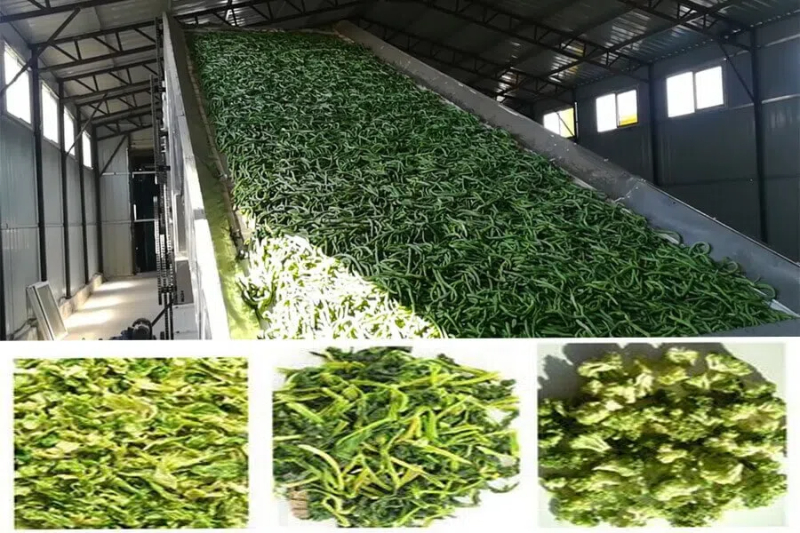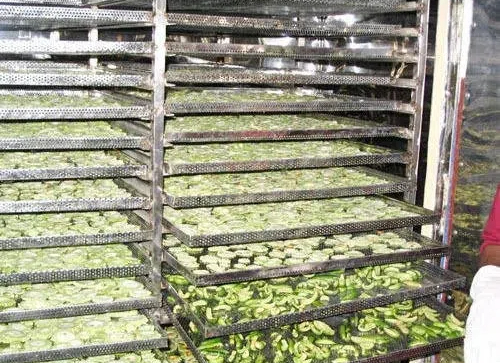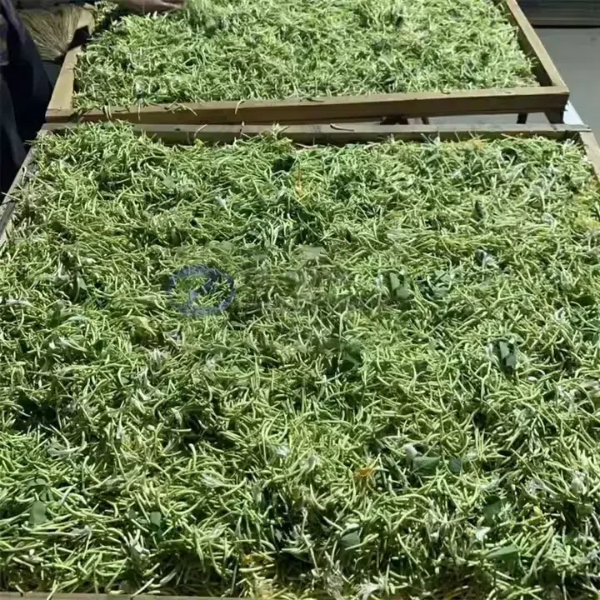
Content Menu
● Introduction to Vegetable Dehydration Machines
>> Types of Vegetable Dehydration Machines
● Factors Influencing Vegetable Dehydration Machine Costs
● Strategies for Acquiring Cost-Effective Vegetable Dehydration Machines
● OEM Services for Vegetable Dehydration Machines
● Case Studies: Successful Applications of Vegetable Dehydration Machines
● Conclusion
● Frequently Asked Questions
>> 1. What are the main types of vegetable dehydration machines?
>> 2. How does machine capacity affect the cost of vegetable dehydration machines?
>> 3. What factors should I consider when choosing a vegetable dehydration machine?
>> 4. How can I ensure cost-effectiveness when purchasing a vegetable dehydration machine?
>> 5. What are the benefits of using high-quality vegetable dehydration machines?
● Citations:
Vegetable dehydration machines are essential tools in the food processing industry, enabling the preservation of fresh produce by removing moisture content. This process extends shelf life, retains nutrients, and facilitates the transportation and storage of vegetables. As the demand for dried vegetables increases, so does the need for understanding the wholesale prices and cost considerations for vegetable dehydration machines. In this article, we will delve into the various types of vegetable dehydration machines, their costs, and factors influencing these costs.

Introduction to Vegetable Dehydration Machines
Vegetable dehydration machines come in various sizes, capacities, and technologies, catering to diverse requirements in the food processing industry. These machines are used for drying a wide range of vegetables, including onions, garlic, carrots, spinach, and more. The choice of machine depends on the type of vegetable, desired drying speed, and final product quality.
Types of Vegetable Dehydration Machines
1. Conventional Hot Air Dryers: These machines use hot air to evaporate moisture from vegetables. Prices for conventional hot air dryers typically range from $500 to $3,000, depending on the size and capacity. They are cost-effective and widely used for drying a variety of vegetables.
2. Vacuum Dryers: Vacuum dryers remove moisture from vegetables under low pressure, preserving color, flavor, and nutrients. Wholesale prices for vacuum dryers can range from $3,000 to $20,000, depending on the machine's capacity and features. They are ideal for drying sensitive vegetables that require gentle processing.
3. Freeze Dryers: Freeze dryers freeze vegetables and then remove moisture through sublimation, leaving behind a highly stable, nutrient-rich product. Freeze dryers are generally more expensive, with wholesale prices ranging from $5,000 to $50,000 or more, depending on the size and capacity. They are used for high-value products where nutrient retention is critical.
4. Infrared Dryers: Infrared dryers use infrared radiation to heat vegetables from the inside out, facilitating faster and more uniform drying. Prices for infrared dryers can range from $1,000 to $10,000, depending on the machine's size and features. They are efficient for drying vegetables with high moisture content.
5. Solar Dryers: Solar dryers utilize solar energy to dry vegetables, offering an eco-friendly and cost-effective solution. Wholesale prices for solar dryers can range from $500 to $5,000, depending on the size and design. They are ideal for small-scale operations or in regions with abundant sunlight.

Factors Influencing Vegetable Dehydration Machine Costs
Several factors can influence the wholesale prices of vegetable dehydration machines. Understanding these factors can help businesses make informed decisions when purchasing equipment.
1. Machine Capacity: Larger machines with higher capacities generally command higher prices due to increased material and manufacturing costs.
2. Technology and Features: Advanced technologies and additional features, such as vacuum drying, freeze drying, or infrared heating, can increase the price of vegetable dehydration machines.
3. Brand and Manufacturer: Established brands and manufacturers may charge premium prices due to their reputation, quality, and customer support.
4. Material and Build Quality: Machines made from high-quality materials and robust construction tend to be more expensive but offer better durability and performance.
5. Energy Efficiency: Energy-efficient machines, such as those with heat recovery systems or low power consumption, may have higher upfront costs but can save money in the long run by reducing operating expenses.
6. Customization: Customized machines designed to meet specific requirements can be more expensive due to the additional engineering and manufacturing costs.
Strategies for Acquiring Cost-Effective Vegetable Dehydration Machines
Purchasing a vegetable dehydration machine is a significant investment for any business. To ensure cost-effectiveness and maximize return on investment, consider the following strategies:
1. Evaluate Production Needs: Assess your production capacity requirements to choose a machine that matches your needs without overpaying for unnecessary capacity.
2. Consider Energy Efficiency: Opt for energy-efficient models to reduce long-term operating costs.
3. Look for Quality and Durability: While more expensive upfront, high-quality machines can last longer and require less maintenance.
4. Research Brands and Manufacturers: Compare prices and services offered by different brands to find the best value for your money.
5. Negotiate Prices: If purchasing in bulk or customizing a machine, negotiate with the manufacturer to secure better pricing.
OEM Services for Vegetable Dehydration Machines
As a Chinese manufacturer providing OEM services for foreign brands, wholesalers, and producers, we understand the importance of tailoring machines to specific client needs. Our services include:
- Custom Design: We work closely with clients to design machines that meet their exact specifications and production requirements.
- Quality Assurance: We ensure that all machines are built with high-quality materials and undergo rigorous testing before delivery.
- Competitive Pricing: We offer competitive pricing without compromising on quality or performance.
Case Studies: Successful Applications of Vegetable Dehydration Machines
1. Large-Scale Vegetable Drying Facility: A major food processing company in Europe utilized our vacuum dryers to dry large quantities of carrots and potatoes. The machines not only improved product quality but also reduced energy consumption by 20%.
2. Small-Scale Organic Farm: A small organic farm in the United States used our solar dryers to dry herbs and leafy greens. The eco-friendly approach helped them maintain their organic certification and reduce operational costs.
Conclusion
Vegetable dehydration machines are crucial for preserving vegetables and extending their shelf life. The cost of these machines varies widely based on technology, capacity, and features. By understanding these factors and adopting cost-effective strategies, businesses can make informed decisions when investing in vegetable dehydration equipment.

Frequently Asked Questions
1. What are the main types of vegetable dehydration machines?
Vegetable dehydration machines include conventional hot air dryers, vacuum dryers, freeze dryers, infrared dryers, and solar dryers. Each type has its unique features and price range.
2. How does machine capacity affect the cost of vegetable dehydration machines?
Larger machines with higher capacities generally cost more due to increased material and manufacturing costs. This is because they require more robust construction and potentially advanced technology to handle larger volumes efficiently.
3. What factors should I consider when choosing a vegetable dehydration machine?
When selecting a vegetable dehydration machine, consider factors such as production needs, energy efficiency, material quality, brand reputation, and customization options. These factors can significantly impact both the upfront cost and long-term operating expenses.
4. How can I ensure cost-effectiveness when purchasing a vegetable dehydration machine?
To ensure cost-effectiveness, evaluate your production needs carefully, opt for energy-efficient models, and consider the long-term durability and maintenance costs of the machine. Additionally, researching different brands and negotiating prices can help secure better deals.
5. What are the benefits of using high-quality vegetable dehydration machines?
High-quality machines offer better durability, lower maintenance costs, and improved product quality. They may also provide features like temperature control and uniform drying, which are crucial for preserving nutrients and flavor in dried vegetables.
Citations:
[1] https://www.tradeindia.com/manufacturers/vegetable-dehydration-machines.html
[2] https://www.yutongdrying.com/vegetable-dryer-machine-wholesale-price/
[3] https://huggingface.co/facebook/xm_transformer_unity_en-hk/raw/main/en_zh_spm.dict
[4] https://dir.indiamart.com/impcat/vegetable-dehydration-machine.html
[5] https://www.dryeratech.com/how-much-does-a-high-quality-fruit-dehydration-machine-cost.html
[6] https://www.cs.cmu.edu/afs/cs.cmu.edu/project/cmt-40/Nice/Transfer/Chinese/xferlexicon.txt
[7] https://www.made-in-china.com/products-search/hot-china-products/Food_Dehydrator_Machine.html
[8] https://www.thepurposefulpantry.com/cost-to-run-a-dehydrator/











